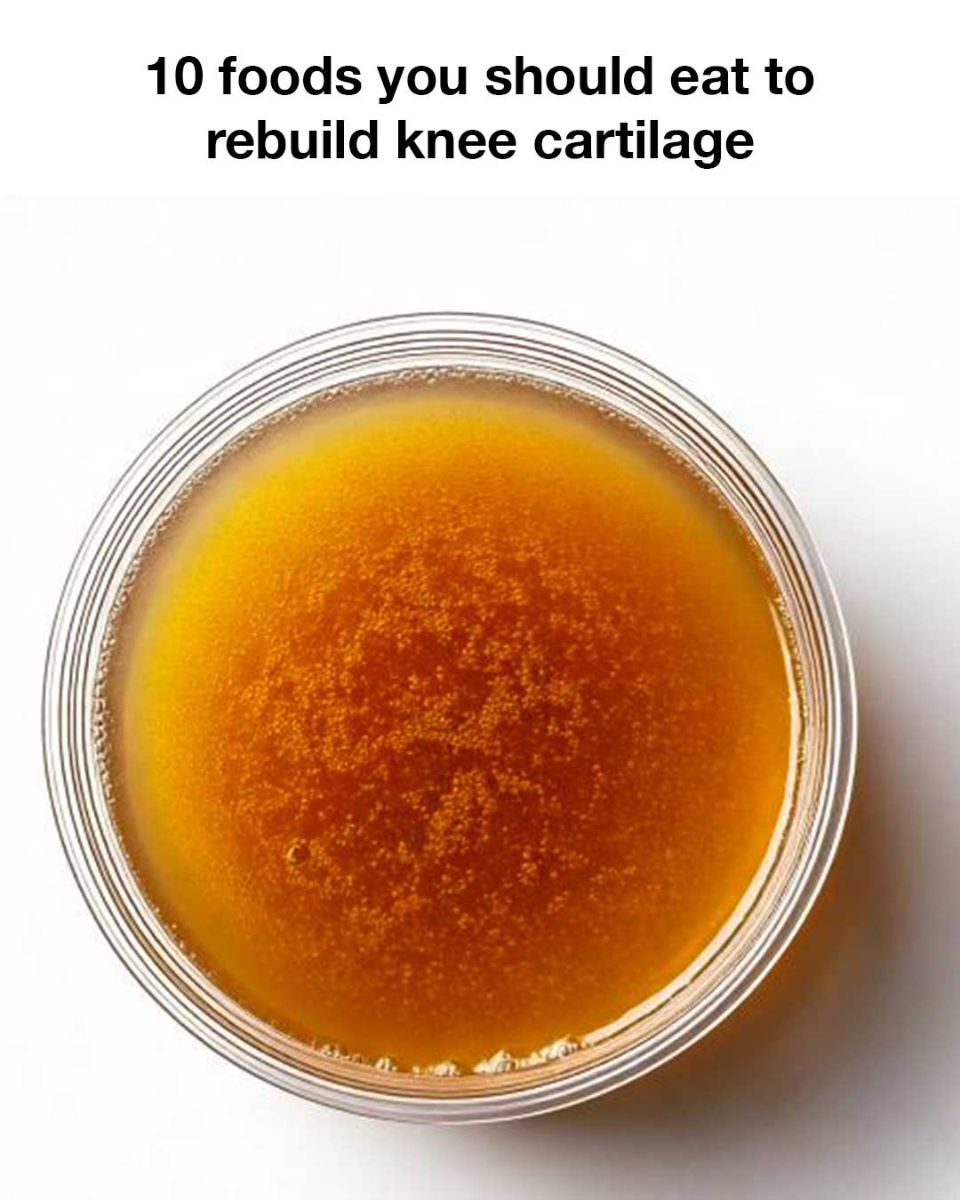The Science Behind Cartilage Regeneration

I was oblivious to this
Cartilage regeneration involves the repair and growth of cartilage tissue. While cartilage has limited self-repair capabilities, certain nutrients can enhance its regeneration. Research suggests that compounds like collagen, omega-3 fatty acids, and antioxidants can aid in the repair process, making dietary choices crucial for those looking to support their joint health.
1. The Benefits of Bone Broth for Cartilage Repair
Bone broth is rich in collagen, a protein that is vital for cartilage health. Collagen provides the building blocks needed for cartilage repair and regeneration. Additionally, bone broth contains amino acids like proline and glycine, which support joint health and reduce inflammation.
2. How Fatty Fish Contributes to Joint Health
Fatty fish such as salmon, mackerel, and sardines are high in omega-3 fatty acids, which have anti-inflammatory properties. These fatty acids can help reduce joint pain and stiffness, making them beneficial for those with cartilage damage. Omega-3s also support the production of cartilage components, aiding in repair.
3. The Role of Leafy Greens in Cartilage Maintenance
Leafy greens like spinach, kale, and Swiss chard are packed with vitamins and minerals, including vitamin C, which is crucial for collagen synthesis. These vegetables also contain antioxidants that protect cartilage from oxidative stress and inflammation.
4. The Impact of Berries on Inflammation and Cartilage
Berries such as blueberries, strawberries, and raspberries are rich in antioxidants and vitamin C. These nutrients help combat inflammation and oxidative damage, which can contribute to cartilage degradation. Regular consumption of berries can support overall joint health.
5. Nuts and Seeds: A Source of Essential Fatty Acids
Nuts and seeds, including almonds, walnuts, and flaxseeds, are excellent sources of omega-3 fatty acids and vitamin E. These nutrients help reduce inflammation and protect cartilage from damage. They also provide magnesium, which is important for bone and joint health.
6. The Importance of Avocados for Joint Lubrication
Avocados are rich in healthy fats and vitamin E, both of which are beneficial for joint health. The monounsaturated fats in avocados help lubricate joints, while vitamin E acts as an antioxidant to protect cartilage from oxidative damage.
7. Citrus Fruits and Their Role in Collagen Production
Citrus fruits like oranges, lemons, and grapefruits are high in vitamin C, a key nutrient for collagen production. Collagen is essential for maintaining the structure and integrity of cartilage, making citrus fruits an important part of a cartilage-supportive diet.
8. The Power of Garlic in Reducing Cartilage Damage
Garlic contains sulfur compounds that have anti-inflammatory properties. These compounds can help reduce cartilage damage and support joint health. Garlic also boosts the immune system, which can aid in the body’s natural repair processes.
9. The Benefits of Olive Oil for Joint Flexibility
Olive oil is rich in oleocanthal, a compound with anti-inflammatory effects similar to ibuprofen. Regular consumption of olive oil can help reduce joint inflammation and improve flexibility, making it beneficial for cartilage health.
10. The Role of Legumes in Providing Essential Nutrients
Legumes such as beans, lentils, and chickpeas are high in protein, fiber, and essential minerals like magnesium and zinc. These nutrients support cartilage repair and maintenance. Legumes also provide plant-based protein, which is important for tissue repair.
Conclusion: Integrating These Foods into Your Diet
Incorporating these foods into your diet can provide the nutrients needed to support knee cartilage health. A balanced diet rich in collagen, omega-3 fatty acids, antioxidants, and essential vitamins and minerals can help protect and repair cartilage, improving joint function and reducing the risk of further damage.
Additional Tips for Supporting Knee Cartilage Health
In addition to dietary changes, maintaining a healthy weight, staying active, and avoiding excessive strain on the knees can support cartilage health. Regular exercise, such as low-impact activities like swimming or cycling, can strengthen the muscles around the knee and improve joint stability. Staying hydrated and avoiding smoking can also contribute to better joint health.
